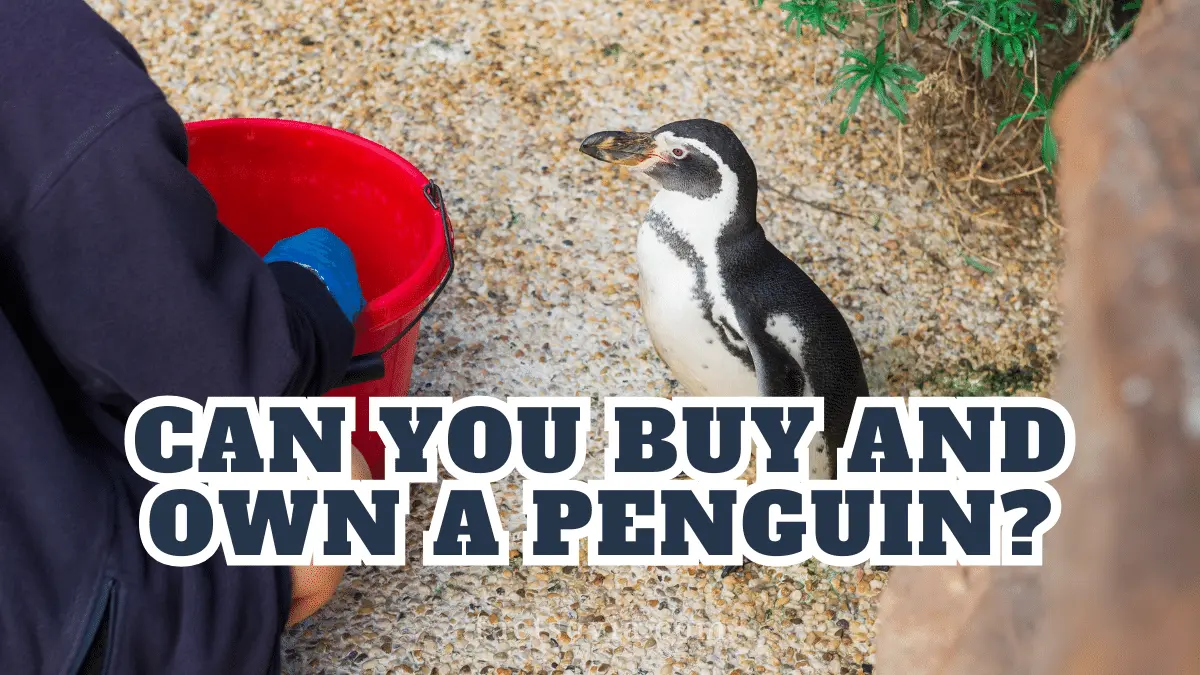We use affiliate links to run our site. When you buy through links on our site, we may earn an affiliate commission, without any added cost to you. Learn more
Have you ever wondered what it would be like to have a penguin as a pet? The idea of having one of these charismatic birds waddling around your home might seem intriguing, but is it legally possible?
In this post, we’ll delve into the world of penguin ownership and explore the legal and ethical aspects of keeping these remarkable creatures as pets.
Get ready to uncover some surprising facts about penguins and the reasons behind the strict regulations that govern their ownership.
The Legal and Ethical Aspects
Penguins are Wild Animals
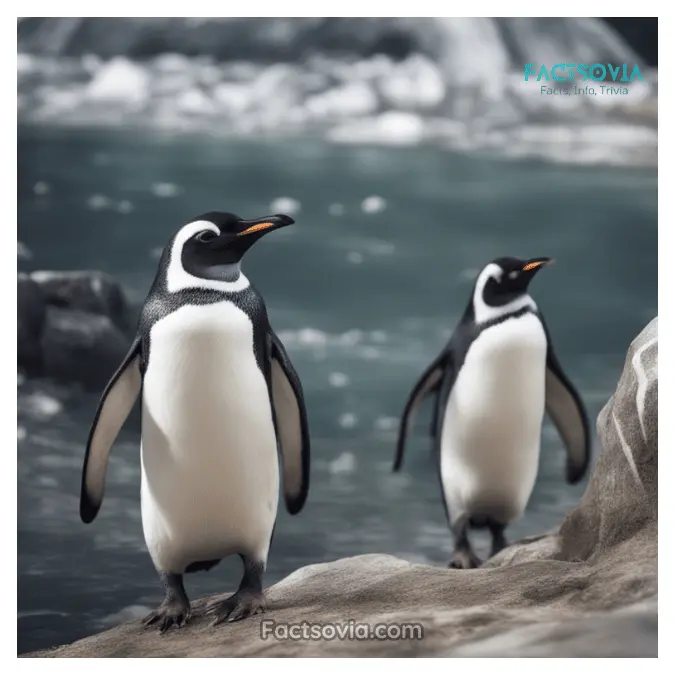
Penguins are not your typical household pets. They are wild animals that belong to a unique and specialized ecosystem. In the wild, they thrive in their natural habitats, which consist of cold, often harsh environments, such as Antarctica and various sub-Antarctic islands.
Penguins have evolved over millions of years to adapt to these conditions, making them ill-suited for domestication.
Does Penguin Have Feathers or Fur?
Ethical Considerations
Keeping a penguin as a pet raises ethical concerns. Penguins have complex social structures and require large colonies to meet their social and psychological needs. In captivity, isolation can lead to depression and behavioral issues.
Penguins need a specific diet of fresh fish, which is not only costly but also time-consuming to provide. They also need access to a large, clean pool of saltwater for swimming and playing. Penguins are not suitable for a typical home setting.
The Role of Zoos and Conservation
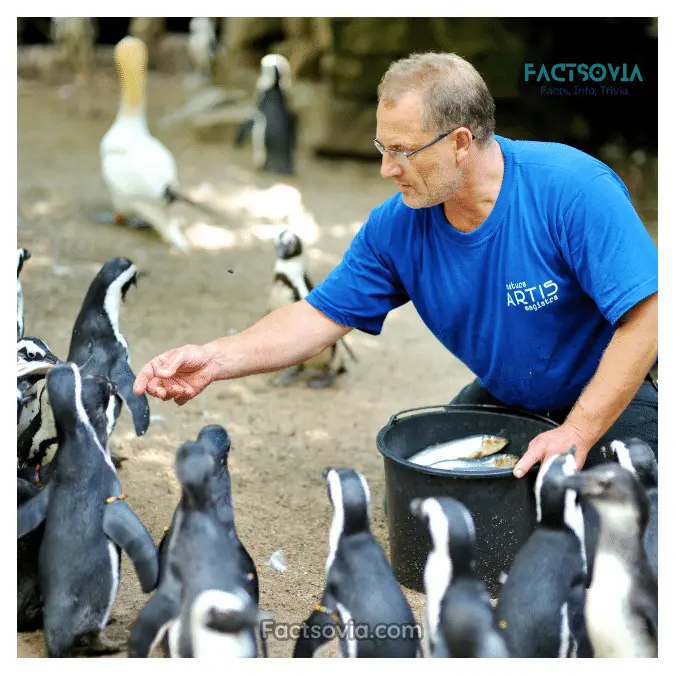
Zoos play a crucial role in penguin conservation efforts. Instead of keeping penguins as pets, supporting zoos and wildlife sanctuaries allows for the study, preservation, and education of these amazing creatures. These institutions create environments that mimic the natural habitats of penguins, promoting their well-being and the conservation of their species.
The Legal Framework
International Laws
Many international agreements protect penguins and other wildlife from exploitation. One key treaty is the Convention on International Trade in Endangered Species of Wild Fauna and Flora (CITES). This treaty restricts the import and export of certain species, including penguins.
All species of penguins are listed in CITES, meaning that owning one caught in the wild is almost impossible and illegal.
National and Local Regulations
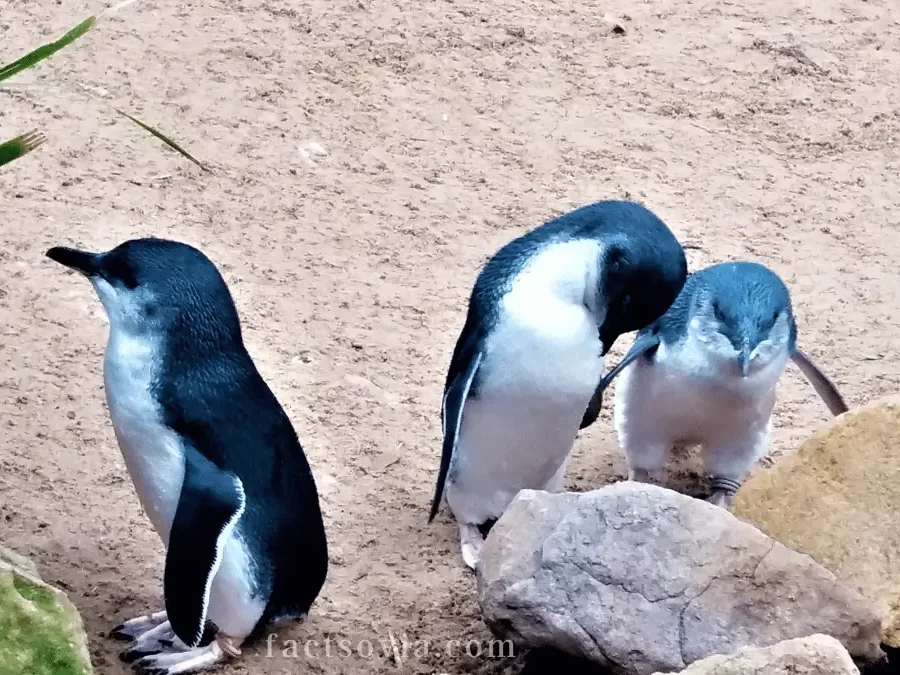
In addition to international laws, countries have their own regulations regarding exotic pet ownership. The United States, for example, prohibits the ownership of penguins as pets without a special permit. These permits are usually granted only for educational or conservation purposes.
It’s essential to research your local laws and regulations if you are considering any exotic pet, including penguins. Ignorance of the law is not an excuse, and violations can result in hefty fines and the confiscation of the animal.
The Penguin Black Market
Sadly, there is an underground black market for exotic animals, including penguins. Unscrupulous dealers often engage in the illegal trafficking of penguins, putting their lives at risk and contributing to the decline of wild populations. By supporting legal channels, you help protect penguins from these harmful practices.
The Challenges of Penguin Care
Diet and Feeding
Penguins have a unique diet of fresh fish and krill. They are picky eaters and may reject certain types of fish. Feeding penguins can be expensive, time-consuming, and messy. Their waste, known as “penguin guano,” is unpleasant and challenging to clean.
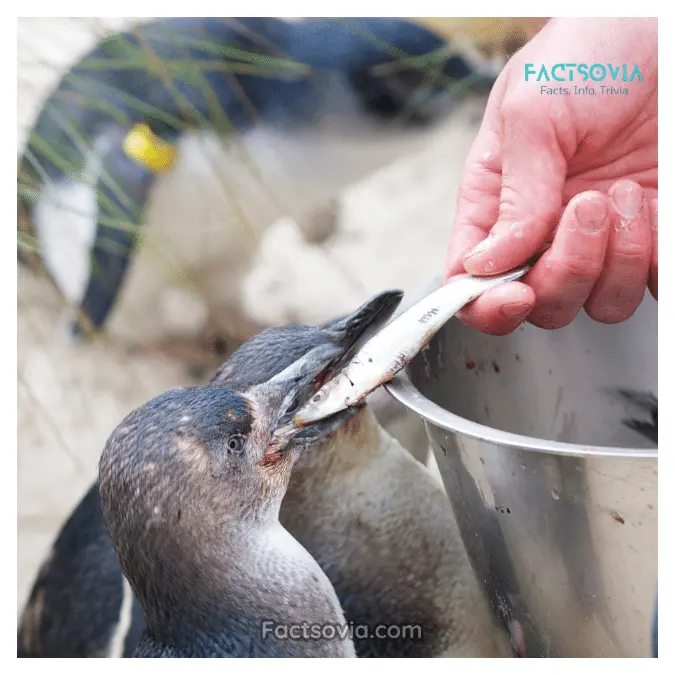
Social Needs
Penguins are highly social animals, and they require the companionship of their own kind. Keeping a single penguin is not only cruel but also detrimental to their mental well-being. You would need a colony of penguins to ensure their happiness.
Specialized Habitat
Penguins need access to clean, saltwater pools where they can swim and exercise. Creating and maintaining such an environment is a significant challenge and expense. Penguins also need shelter from extreme temperatures and harsh weather conditions.
Veterinary Care
Finding a vet with the expertise to care for penguins can be a substantial hurdle. Not all veterinarians have the knowledge and resources to treat exotic animals. Regular veterinary care is essential for ensuring the health of your pet penguin.
Legal and Financial Responsibility
Owning a penguin comes with significant legal and financial responsibilities. You will need permits, insurance, and a thorough understanding of your obligations under the law. The costs associated with caring for a penguin can quickly add up.
Everything you need to know about Penguins
The Penguin and His Rescuer
One heartwarming story comes from a man who found a penguin stranded after an oil spill near a beach in South America. He took the penguin in, cared for it, and eventually released it back into the wild.
The bond between them was strong, showing that humans can make a positive impact on penguins’ lives without owning them as pets.
Penguin Sponsorship
Instead of trying to own penguins, some people opt to support penguin conservation by sponsoring these birds in zoos and sanctuaries. This approach allows individuals to contribute to the well-being of penguins while respecting their natural habitat and social needs.
Common Misconceptions
Penguins as Playful Companions
One common misconception is that penguins are playful and affectionate pets. While they might look charming and adorable, they are not like domesticated dogs or cats. Penguins are wild animals with their own behaviors and instincts.
Easy to Acquire
Another misconception is that acquiring a pet penguin is straightforward. In reality, obtaining the necessary permits and creating a suitable environment for a penguin is a complex and often impractical endeavor.
Conclusion
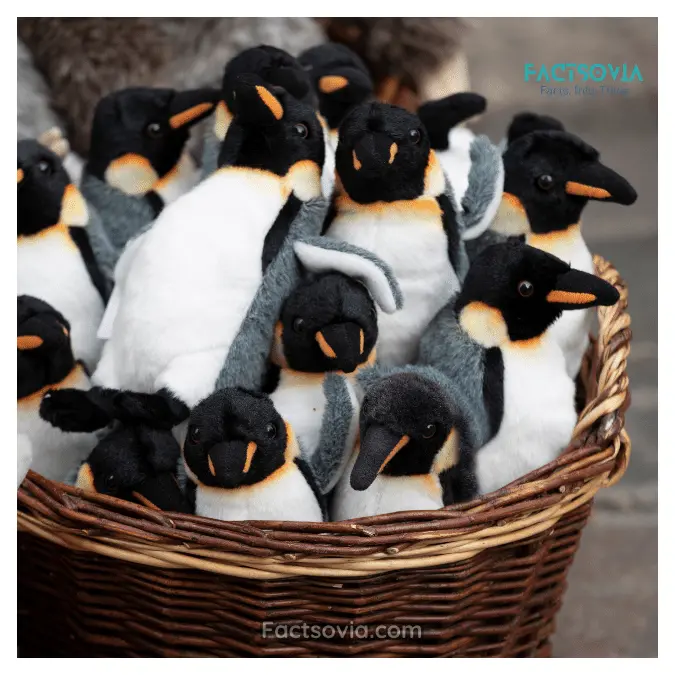
As we conclude this eye-opening exploration into the world of penguin ownership, we hope you’ve gained a deeper understanding of the challenges and considerations surrounding this unusual idea.
Penguins, with their tuxedo-like appearance and charming antics, capture our hearts, but they are truly wild animals that thrive in their natural habitats. The consensus is clear: keeping penguins as pets is not only illegal in most places but also unethical and impractical.
If you found this post intriguing and informative, don’t keep it to yourself! Share it with your friends and family, and let’s raise awareness about the importance of wildlife conservation and ethical pet ownership.
Explore more articles on our site to satisfy your curiosity about animals, conservation, and fascinating facts from around the world. Keep learning, keep exploring, and, most importantly, let’s work together to protect our planet’s incredible biodiversity.
FAQs
What are some challenges of keeping penguins at home?
Keeping penguins at home poses numerous challenges. Penguins require large, specialized habitats with access to water for swimming, diving, and hunting. They have unique dietary requirements and require a constant supply of fresh fish.
Maintaining appropriate temperature and humidity levels is also crucial. Additionally, penguins are highly social animals and need companionship from their own species, which can be difficult to provide in a home environment.
What are some alternatives to owning penguins?
There are several alternatives to owning penguins that allow you to support their conservation without having them as pets. You can donate to reputable penguin conservation organizations, volunteer your time to assist in conservation projects, educate others about the importance of penguin conservation, or even adopt a penguin symbolically through various programs offered by conservation groups.
Can you still see and interact with penguins without owning them?
Yes, absolutely! Many zoos, aquariums, and wildlife sanctuaries offer opportunities to see and learn about penguins up close. These facilities provide educational programs and exhibits that allow you to observe penguins in a responsible and ethical manner, while also supporting their conservation efforts.
What are some specialized facilities required for proper penguin habitats?
Proper penguin habitats require specialized facilities that mimic their natural environments. These facilities typically include large pools or tanks with access to clean water for swimming and diving. They need appropriate temperature and humidity control, as well as access to shaded areas. The habitats should also be designed to provide opportunities for natural behaviors, such as nesting and social interaction among penguins.
Are there any licenses or permits required for owning penguins?
Yes, owning penguins often requires specific licenses and permits due to their protected status and the regulations surrounding their ownership. These licenses and permits are in place to ensure that proper care and welfare standards are met. It is important to consult with local authorities or wildlife agencies to understand and comply with the legal requirements for owning penguins, if applicable.
Amazon and the Amazon logo are trademarks of Amazon.com, Inc, or its affiliates.
